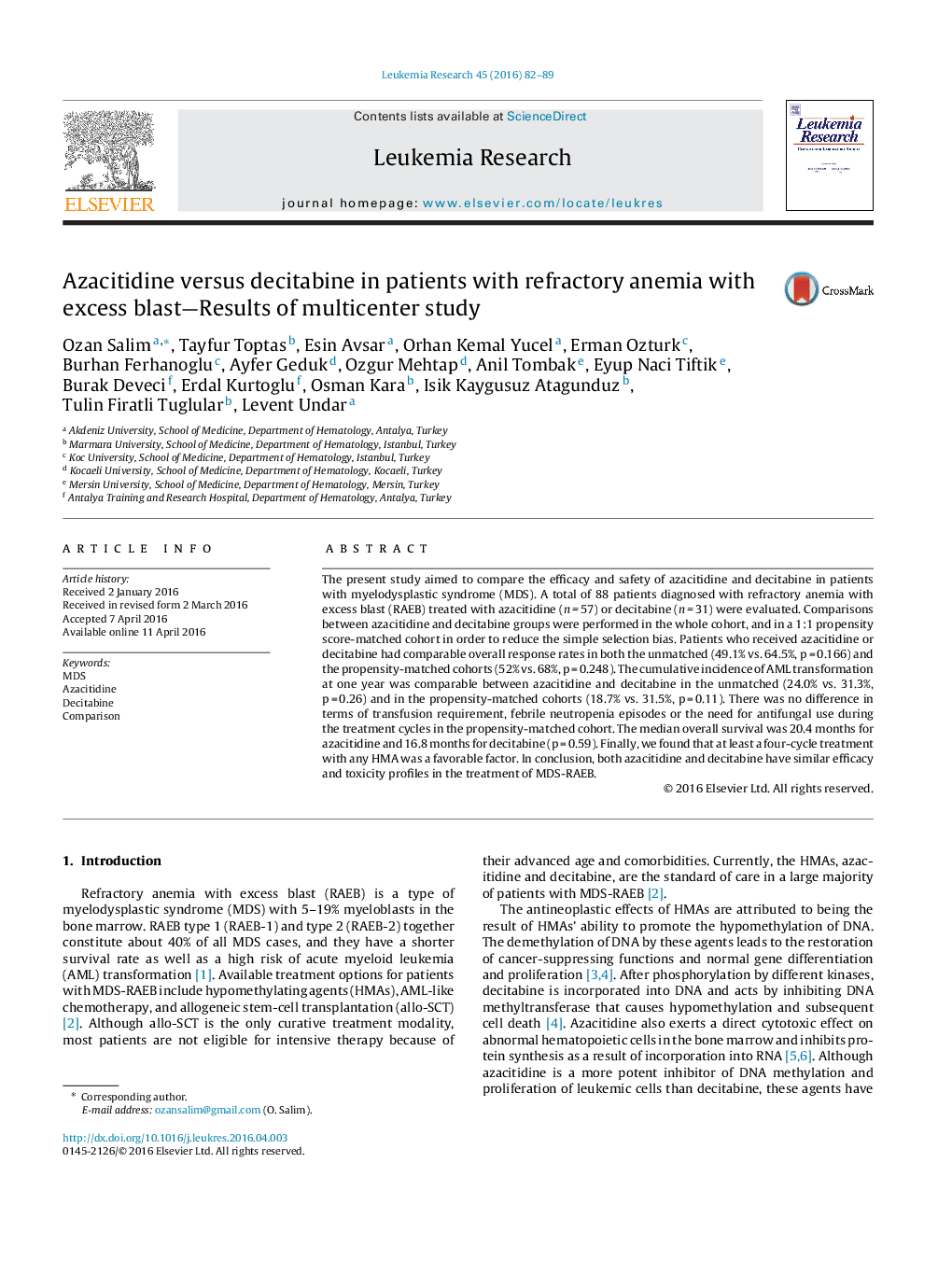| Article ID | Journal | Published Year | Pages | File Type |
|---|---|---|---|---|
| 2136395 | Leukemia Research | 2016 | 8 Pages |
Abstract
The present study aimed to compare the efficacy and safety of azacitidine and decitabine in patients with myelodysplastic syndrome (MDS). A total of 88 patients diagnosed with refractory anemia with excess blast (RAEB) treated with azacitidine (n = 57) or decitabine (n = 31) were evaluated. Comparisons between azacitidine and decitabine groups were performed in the whole cohort, and in a 1:1 propensity score-matched cohort in order to reduce the simple selection bias. Patients who received azacitidine or decitabine had comparable overall response rates in both the unmatched (49.1% vs. 64.5%, p = 0.166) and the propensity-matched cohorts (52% vs. 68%, p = 0.248). The cumulative incidence of AML transformation at one year was comparable between azacitidine and decitabine in the unmatched (24.0% vs. 31.3%, p = 0.26) and in the propensity-matched cohorts (18.7% vs. 31.5%, p = 0.11). There was no difference in terms of transfusion requirement, febrile neutropenia episodes or the need for antifungal use during the treatment cycles in the propensity-matched cohort. The median overall survival was 20.4 months for azacitidine and 16.8 months for decitabine (p = 0.59). Finally, we found that at least a four-cycle treatment with any HMA was a favorable factor. In conclusion, both azacitidine and decitabine have similar efficacy and toxicity profiles in the treatment of MDS-RAEB.
Keywords
Related Topics
Life Sciences
Biochemistry, Genetics and Molecular Biology
Cancer Research
Authors
Ozan Salim, Tayfur Toptas, Esin Avsar, Orhan Kemal Yucel, Erman Ozturk, Burhan Ferhanoglu, Ayfer Geduk, Ozgur Mehtap, Anil Tombak, Eyup Naci Tiftik, Burak Deveci, Erdal Kurtoglu, Osman Kara, Isik Kaygusuz Atagunduz, Tulin Firatli Tuglular, Levent Undar,
